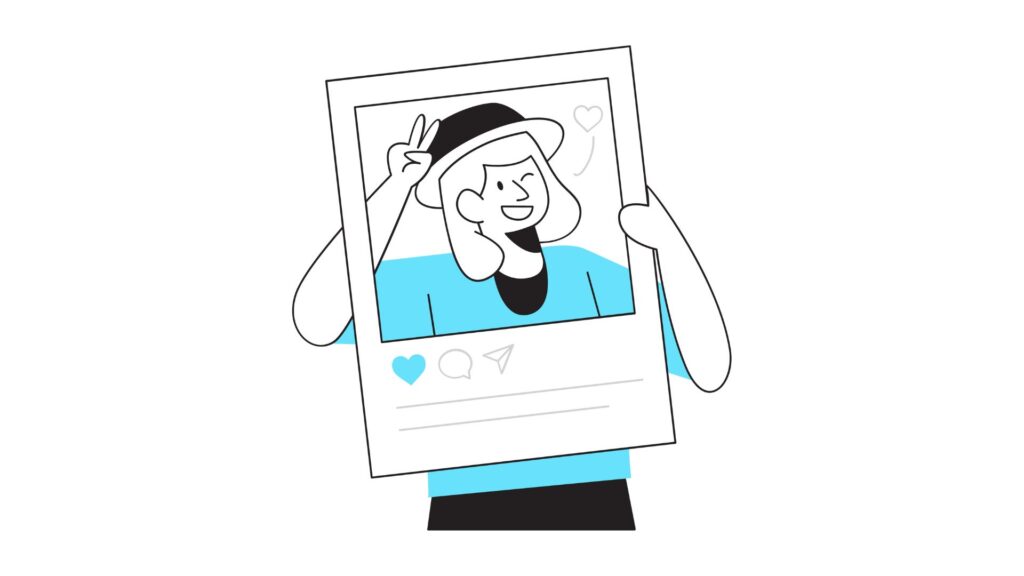How to Stop Using Social Media and Reclaim Your Time

Social media has become a ubiquitous part of daily life, but an increasing number of people are exploring how to quit social media to improve their mental health, productivity, and overall well-being. This transition, however, is easier said than done due to the addictive nature of these platforms. If you’re among the growing cohort looking to break free from the grip of endless scrolling, this article will guide you through the why and how of quitting social media, offering practical advice for reclaiming your time and mental space. How to stop using social media – right now?
Why Quit Social Media?
Understanding the Impact of Social Media on Mental Health
Engaging excessively with social media apps has been linked to various negative mental health outcomes, including increased feelings of social isolation, anxiety, and depression. The constant barrage of perfect images can lead to social comparison, where users measure their lives against the often-unrealistic portrayals seen in their feeds, leading to feelings of inadequacy. Quitting social media, or substantially limiting its use, can help address these concerns, making room for a healthier relationship with your self-esteem and overall mental wellness.
The Connection Between Social Media Use and Productivity
The urge to scroll through social media can become a profound distraction, eating into our productivity. The minutes or hours you intend to spend on social media often snowball, detracting from time that could be allocated to more constructive activities or necessary breaks. By deciding to quit social media or limit social media use, individuals find they can reclaim large portions of their day, enhancing focus and efficiency in both personal and professional spheres.
How FOMO Can Lead to Increased Social Media Addiction
The Fear of Missing Out (FOMO) is a powerful driver behind social media addiction. The desire to stay in the loop, coupled with notification alerts, creates a cycle of continuous engagement, ensuring social media users remain hooked to their screens to avoid missing out on any updates. This cycle feeds into the dopamine-driven reward system, similar to substance use disorders, making it harder to take a break from social or quit altogether.
Preparing to Quit: Steps to Take Before You Leave Social Media for Good
How to Reframe Your Mindset for a Life Without Social Media
To successfully detox from social media, it is crucial to reframe your mindset. Instead of viewing it as losing a lifeline to the outer world, see it as gaining the opportunity to experience life more fully and meaningfully. Picture the activities and hobbies you’ve been neglecting or the personal relationships that could deepen with more direct interaction. Shifting your perspective in this way prepares you mentally for the break from social media.
Identifying What You Gain by Quitting Social Media
Enumerating the benefits of quitting social media can serve as a powerful motivator. Imagine the extra hours gained for hobbies, relaxation, or simply being more present with loved ones. Also, consider the benefits to your mental health, such as reduced anxiety and a break from the cycle of social comparison.
Setting Realistic Expectations and Goals for Your Social Media Detox
Quitting social media cold turkey might work for some, but setting realistic goals is often more effective. Start by gradually reducing your screen time, perhaps by deleting one or two less-essential social media apps from your phone at first. This approach can help minimize the initial shock to your daily routine, making the transition smoother and more sustainable.
How to Delete or Deactivate Your Social Media Accounts
Step-by-Step Guide on How to Permanently Get Rid of Social Media Accounts
Most social media platforms offer options to either temporarily deactivate or permanently delete your account. Begin by exploring the settings or account management section of each app, where you’ll often find a guide on how to proceed. Remember, deactivation is reversible, but deletion will remove your data forever. Therefore, it might be wise to download any important data or memories from your account before taking the plunge.
Taking a Break vs. Permanent Deletion: What’s Right for You?
Deciding whether to take a break or permanently rid yourself of social media accounts is a personal choice. Taking a break by deactivating your account allows you to assess how its absence impacts your life without making a final decision. On the other hand, if your relationship with social media feels hopelessly toxic, deletion might be a more suitable option.
Dealing with the Emotional Fallout of Leaving Social Media
The decision to quit social media may come with unexpected emotional responses, such as feeling out of the loop or disconnected from acquaintances. It’s essential to prepare for this and plan ways to stay connected with your community. Engaging in more direct communication methods, like phone calls or messaging apps, can mitigate these feelings, ensuring you maintain the social connections most important to you.
Expert Comment: Dr. Hector Ruiz, Neuroscientist and Author
“Research has shown that dopamine plays a significant role in how we form and sustain bad habits, particularly with the apps on your phone that you may find hard to resist. This neurotransmitter reinforces the habit loop every time we engage in quick-checking behaviors, making social media seem less like a tool and more like a chore we can’t escape from.
Don’t use this understanding to foster guilt, but rather to empower yourself to make informed decisions about how you invest our time. For those considering fully quitting certain apps, remember it’s not just about removal but about replacement. As James Clear articulates in Atomic Habits, the environment you create for yourself can either promote or deter your habits.
To break away from these cycles, begin by reassessing how you interact with your digital devices. Think about what you’re missing out on when your time and attention are monopolized by fleeting content. Instead of merely scrolling, seek out activities that provide lasting satisfaction and align more closely with your long-term goals.
Fully quitting may sound daunting, but with the right strategies and a commitment to reshaping your daily routines, it is entirely achievable. Consider this not just a detox but a realignment of where your rewards are coming from, pivoting from short-lived dopamine spikes to more substantial, fulfilling rewards.”
Techniques to Limit Your Time on Social Media Without Quitting Completely
Using App Limit Features to Control Your Social Media Use
For those not ready to quit social media entirely, using app limit features on your phone can be a viable way to control your social media use. Setting daily limits for each app can help restrain the amount of time spent on social media, reducing the risk of falling into prolonged scrolling sessions.
The Role of Self-Control and Setting Time Limits
Developing self-control and setting strict time limits for social media use are crucial strategies. Allocating specific times of the day for social media and sticking to them can help limit its intrusion into your life. Additionally, practicing mindfulness about why and when you reach for your phone can further reduce unnecessary use.
How Turning Off Notifications Can Reduce Time Spent on Social Media
Notifications serve as constant reminders, pulling us back into the social media vortex. Turning off notifications for social media apps can dramatically reduce the urge to check your phone, thereby limiting the time you spend on these platforms and helping maintain your focus on the present moment.
Expert Comment: Dr. Olivia Sterling, Behavioral Scientist and Consultant, American Psychological Association
“In light of the dopamine-driven reward pathways that apps like TikTok and Snapchat cleverly activate, 2022 marked a turning point in how we engage with social media. As we recognize these neural pathways that make us feel anxious or like we’re missing out, it becomes essential to rethink our social media consumption. For those feeling constantly tempted to use your phone or feeling withdrawal symptoms when not checking the news feed, I recommend following strategies proposed by thinkers like James Clear in ‘Atomic Habits.’
Firstly, try moving your apps around on your home screen or even turning off all notifications to make social media less present in your life. If you’ve decided that you want to quit fully, deleting the apps can help you to take that step. This means you’ve reached a pivotal moment where you know how to stop getting sucked back in. Plan for how you’ll invest your time—perhaps by picking up a new hobby or making social media making a chore, not a leisure activity.
To ease your way into less distracted living, uninstall Insta or Snapchat and turn off my phone at certain times to foster better focus and longer attention spans, essential for achieving goals. If you feel tempted to check your phone, put your phone away in another room, and make a plan that prioritizes work-related tasks over time scrolling through social media. Set limits to help yourself, such as using the app only when you need to keep in touch or plan significant interactions.
Remember, making intentional choices about your digital detox can help you become more present in the moments that truly matter. As we step into new behaviors, it’s crucial to acknowledge that each small change is a step toward becoming less dependent on social media’s ability to hijack our attention.”
Maintaining a Balanced Approach: How to Use Social Media for Good
Finding and Following Accounts That Inspire and Motivate
Should you choose to continue using social media, curate your feed to serve your mental and emotional well-being. Follow accounts that inspire, educate, and motivate you, ensuring that your social media experience is positive and enriching.
Limiting Your Social Platforms: Sticking to Just One Social Media App
Limiting your presence to just one or a few platforms can significantly decrease the time you spend on social media while still allowing you to stay in the loop. Choose the platform that brings you the most joy or value, and stick with it, disregarding the rest.
The Importance of Unfollowing and Curating a Healthy Feed
Actively managing who and what you follow is crucial for maintaining a healthy relationship with social media. Unfollow accounts that trigger negative emotions or lead to unhealthy comparisons, and instead, focus on constructing a feed that uplifts and informs. This proactive stance can transform your social media from a source of stress to one of joy and inspiration.
Quitting social media is a personal journey unique to each individual’s experience and needs. Whether you’re considering a temporary break or aiming for a permanent disconnect, the goal is to foster a healthier lifestyle, free from the undue influence of constant digital connectivity. By taking proactive steps, you can reclaim your time, focus on meaningful connections, and cultivate a sense of well-being that thrives both online and off.



